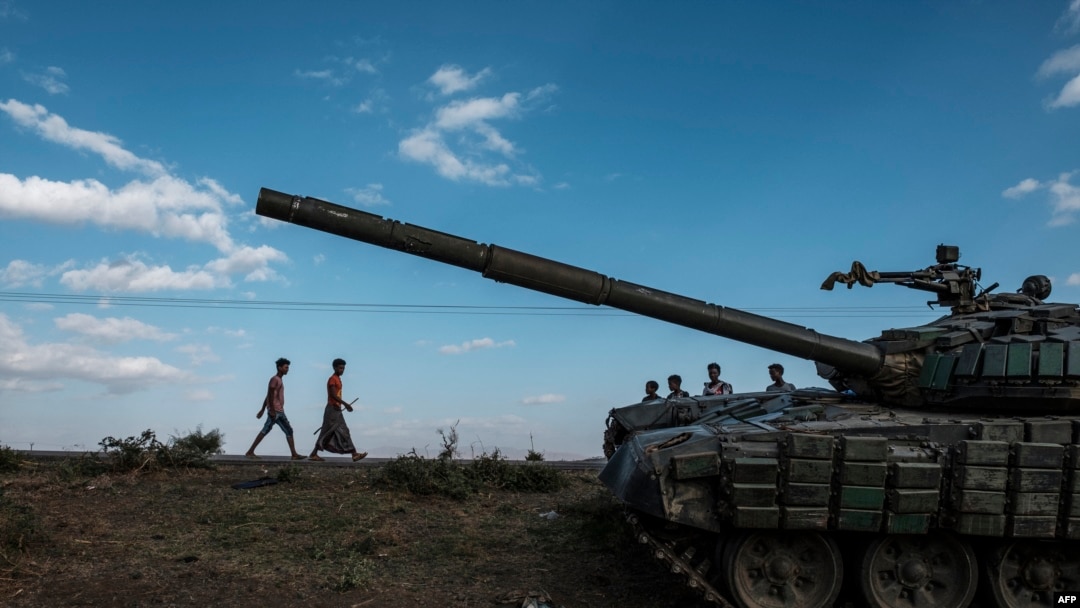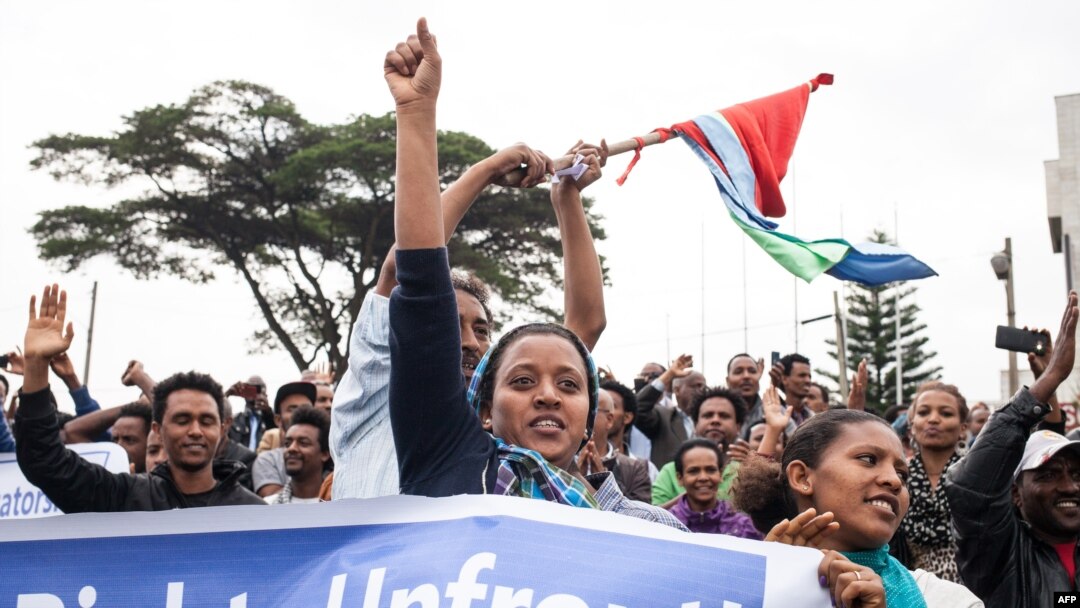A report submitted to the U.N. Human Rights Council Friday finds a lack of progress in the human rights situation in Eritrea.
Investigators said that dissenting voices are being violently and systematically crushed by the government.
U.N. special rapporteur Mohamed Abdelsalam Babiker said those most at risk include political opponents, activists, journalists, religious leaders, and draft evaders. He said they are subjected to prolonged arbitrary detention in inhuman and degrading conditions, in some instances amounting to torture.
Babiker said thousands of Eritreans have been arbitrarily detained and held in prison since 1991, stripped of their legal rights.
“Some have died over the years,” Babiker said. “The whereabouts of others remain unknown. I urge this Council to extend the maximum possible pressure on the Eritrean authorities to release all prisoners of conscience. A comprehensive reform of the justice sector is also urgently needed to re-establish the foundations of the rule of law.”
The U.N. investigator says the ongoing conflict in Ethiopia is worsening the already dire situation of forced conscription in Eritrea. Babiker said the government justifies its indefinite extension of the national service as necessary to defend the country against the Tigray People’s Liberation Front.

FILE - Youngsters walk next to an abandoned tank belonging to Tigrayan forces south of the town of Mehoni, Ethiopia, December 11, 2020.
The rebel group from Ethiopia’s Tigray region, which borders Eritrea, has been at war with the Ethiopian government since November 2020.
Babiker said the national service program is akin to forced labor and is one of the key sources of human rights violations in the country.
“Conditions for conscripts are extremely harsh, and sexual harassment, severe punishments and inhuman or degrading treatment are common, Babiker said. “The program also has severe impacts on the rights to education and to the decent work of thousands of Eritreans, as well as on their families who cannot survive on the meager pay received by conscripts.”
Babiker said the conditions continue to push thousands of young Eritreans to flee their country every year. He calls on the government to engage in a constructive dialogue to improve human rights in the country.
Ambassador Gerahtu Tesfamicael in Eritrea’s Ministry of Foreign Affairs said his country has been the target of politically motivated resolutions and mandates of the U.N. Human Rights Council for years.
He said this latest report presents unsubstantiated allegations of violations and ignores the positive developments made in areas of social justice and human rights. While his government faces human rights challenges, the ambassador said there is no systematic human rights crisis in the country.


